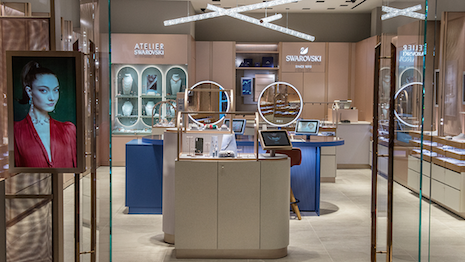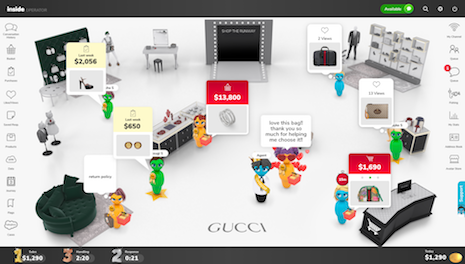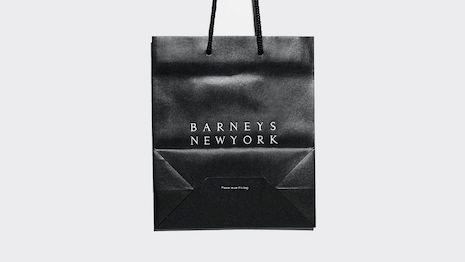 How will luxury retailers adapt in the next decade? Image courtesy of Swarovski
How will luxury retailers adapt in the next decade? Image courtesy of Swarovski
NEW YORK – In the coming decade, luxury retail will need to adapt at breakneck speed to keep up with consumers’ expectations.
During a presentation at Luxury FirstLook 2020 on Jan. 15, an executive from Isobar described how different the world will look in 2030 compared to today. As populations grow and technology evolves, retail and shopping will follow suit.
“The overarching thing we’re experiencing now is change,” said Jon Reily, senior vice president and global head of commerce at Isobar. “Thanks to smartphones, change is coming so rapidly to retail – and it’s coming as fast as we can stand it.”
Luxury FirstLook 2020 was produced by Luxury Daily, with venue sponsor UBS
Retail revolution?
Global forces, including population growth and climate change, will change how consumers behave in 2030, argues Mr. Reily.
Cryptocurrency, which is starting to gain acceptance among the affluent set (see story), will become commonplace. Mr. Reily also predicts that blockchain technology will continue to be used to trace supply chains for environmental and ethical reasons, as luxury players LVMH and Tiffany & Co. have already begun to do (see story).
The pace of innovation and rising consumer expectations will only continue to accelerate.
Barneys failed to adapt to a more experiential retail environment before declaring bankruptcy. Image credit: Barneys New York
This will usher in an era during which retailers will become entertainers, as physical stores shift towards becoming showrooms and destinations for consumers to spend their leisure time.
According to JLL’s “Future of Retail” report, nearly four in 10 shoppers expect to see more innovative retailers in shopping centers in the next decade, while a third want more entertainment and dining options. About 16 percent want shopping centers to incorporate non-retail uses.
About 30 percent of all consumers are looking for family-friendly entertainment, including 40.3 percent of xennials, those consumers between ages 35 and 44. Gen Z consumers in particular are drawn to activities such as indoor skydiving, arcades and virtual reality experiences (see story).
Luxury brands are already embracing more experiential strategies for their bricks-and-mortar locations.
Department store chain Nordstrom is investing in store experiences that extend beyond purchasing, looking to engage consumers through services and hospitality to build more long-term relationships.
Nordstrom’s recently-opened New York store is its most experiential environment, with food and beverage destinations that mingle with sales floors. For instance, the footwear department includes a bar that enables shoppers to grab a drink while trying on shoes, creating a more convivial atmosphere (see story).
Additionally, Mr. Reily expects retailers will soon be measured against consumers’ most recent interactions, even if those were from another sector. Subconsciously, a consumer may compare their experience at a bank and a boutique as apples and apples – every interaction or errand will be an opportunity for a quality customer experience.
Technology support for sales associates, from customer relationship management software to artificial intelligence and blockchain, will allow them to provide more focused and personalized service to affluent consumers.
Luxury leaders, including Italian fashion label Gucci and department store chain Neiman Marcus, are turning to artificial intelligence and avatars to enhance the omnichannel customer experience.
Powerfront’s goal is to help brands better understand ecommerce shoppers and deliver in-store quality customer service online with its Inside customer engagement platform. The software empowers online service representatives by transforming traditional customer analytics into individual onscreen avatars — essentially humanizing Web traffic for retailers (see story).
 Gucci's virtual sales force. Image courtesy of Powerfront
Gucci's virtual sales force. Image courtesy of Powerfront
Meanwhile, mundane and repetitive tasks are more likely to become automated.
In the coming years, shopping will be even less constrained to physical locations. Mr. Reily believes more media, including television, will become seamlessly shoppable.
Further advancements in technology such as automation and 3D printing will make delivery of goods even more rapid and efficient.
Paired with technological innovations, the availability of consumer data will also make it easier for brands to scale up their offerings of customized goods and services.
“Expectations can go beyond what we can do as brands and retailers,” Mr. Reily said. “What once seemed ridiculous is now commonplace.”
Access over ownership
Models of ownership will also continue to morph in the next decade, according to Mr. Reily.
Propelled by the strength of the sharing economy, the very notion of ownership has changed. As younger affluents grow more accustomed to minimalist lifestyles and the sharing economy, car ownership is one area that has become less of a priority.
As Generation Z consumers grow up, many are unmotivated by traditional markers of adulthood, with only 30 percent interested in car ownership as a financial goal, according to an Experian survey.
Luxury automakers are already responding as these trends devalue the importance of vehicle ownership.
Since early 2017, automakers including Cadillac, Porsche, Jaguar Land Rover and Lexus have introduced their own subscription ownership models, as affluent consumers are growing more accustomed to sharing goods, including personal vehicles. Unlike traditional purchasing, financing or leasing options, subscription models typically consist of one all-inclusive cost that covers renting vehicles, as well as insurance, taxes and maintenance (see story).
Views of ownership are even changing within consumers’ closets.
Secondhand luxury handbag seller Rebag is making it easier for consumers to invest in high-end purses with the launch of a circular ownership program.
With Rebag Infinity, consumers who buy a handbag can trade it in up to six months later to receive 70 percent or more of the original purchase price back in store credit. The goal is to allow women to consistently update their closets and stay on trend without long-term commitments (see story).
“Brands need to move forward now or they’re not going to make it,” Isobar’s Mr. Reily said. “What’s worked in the past probably won’t work in the future.”

